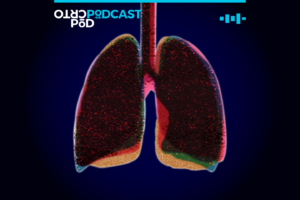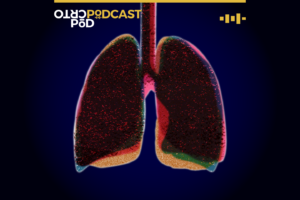Creating impact: Changes for the better

With the collection of articles on this website, we wish to demonstrate that by investigating and pointing out irregularities, journalism can indeed make a significant contribution to changes for the better. Please find more details on the impact of our investigative work below:
- In 2020 and 2021 we revealed the case of Marina and the consequences it brings to the prosecution of human trafficking and the abuse of prostitution in Slovenia. It is probably the most notorious brothel in our country, in which influential businessmen were involved, and the earnings rose to millions of euros. At the peak of its activity in 2017, the Marina Club had revenues of more than half a million euros per month, and visits regularly exceeded 6,000 male customers per month. The four defendants in the Marin case – Sergej Racman, Jože Kojec, Dejan Šurbko, and Vesna Ternovec – were sentenced to several years in prison in May 2024 for abusing prostitution in a criminal gang. In July the decission of the court has not been legaly binding yet. More in the article: The case of Marina: the four were sentenced to fines and several years in prison. (July 2024)
- Pod črto began working on the issue of occupational diseases in Slovenia in 2015. Experts estimate that around 1 000 workers in Slovenia fall ill with an occupational disease each year, while the Ministry of Labour records between 30 and 80 officially recognised cases of occupational illnesses annually. For decades, an unregulated system has prevented people with occupational diseases from having an occupational illness officially recognized / verified, which prevented them from accessing the rights that result from it: disability insurance reimbursements and the possibility of compensation. Over the years, several ministries have promised to regulate the problem, but each time the promise has been broken. Following a complaint of the Association of Free Trade Unions of Slovenia to the International Labour Organisation (ILO), the Ministry of Health has adopted a new Rule on the Recognition of Occupational Diseases. More on this in the article: Change for the better: New Rule on Occupational Diseases adopted (February 2023)
- Pod črto’s investigation findings on media ownership in Slovenia were quoted multiple times in the 2021 European commission Rule of Law report. The report also highlighted inefficient prosecution of corruption in the country – a theme that features prominently in many of Pod črto’s investigations in the past years. More on this in the article: Rule of Law: European commission report quotes our findings on media ownership (July 2021)
- In 2019, Pod črto reported on abuse of municipally-owned media and taxpayer money for political promotion of former mayor of Koper, Boris Popovič. Two years later, Koper municipality’s supervisory board confirmed our findings. More on the story in the article: Supervisors: Popovič abused municipal paper for election campaign (July 2021)
- Pod črto’s investigations on media ownership and astroturfing were an important source for a report on the state of media in Slovenia and attacks of the ruling party SDS on media independence. The report was published by Media Freedom Rapid Response Mechanism which brings together nternational journalist organizations. More on the report in the article: Pod črto’s investigations an important source for European report on media in Slovenia (June 2021)
- At the beginning of 2021, we uncovered how the propaganda machine of the ruling party SDS functions on Twitter. In April 2021, Twitter suspended multiple Twitter profiles which had been publishing SDS propaganda and attacking opponents and critics of the party or the government. More on this in the article: Twitter suspends fake profiles which promoted the SDS party (May 2021)
- In the autumn of 2020, Pod črto published an investigative series on Marina brothel. Among others, we uncovered a sloppy police investigation into the matter, which resulted in inadmissible evidence against pimps, accused of human trafficking while procuring prostitutes for Marina. Pimps were then set free. In January 2021, Slovenian police and Ministry of the Interior started an internal investigation into police conduct in the case of Marina. More on this in the article: The case of Marina: evidence ruled inadmissible, ministry starts and investigation into police conduct (January 2021)
- Council of Europe issued a special report on protecting media pluralism and competiton in media markets in the EU states. Part of the report that deals with Slovenia is based on articles on the subject matter that were published by Pod črto in recent years. More on this in the article: Pod črto’s investigation of media ownership is a basis for a Council of Europe report (December 2020)
- In autumn of 2020, Slovenian supreme court upheld a prison sentence of three years and four months for Barbara Podlogar. As Pod črto has reported in 2019, Podlogar was a crucial “undertaker of companies” in a scheme which defrauded creditors of various bankrupt Slovenian companies for millions of Euros. Podlogar was sentenced for her involvement in defrauding a state-owned company Elektrooptika for almost a million Euro. More on this in the article: Supreme Court: Barbara Podbregar, undertaker of companies, has to go to prison (November 2020)
- Slovenian courts sentenced real estate mogul Aleksander Jančar to a penalty of three years suspended prison sentence and ordered him to pay a million dollar penalty for his involvement in a company named Avioprojekt. As Pod črto has uncovered in 2019, Avioprojekt obtained financing which amounted to more than 7 million Euro from Hypo Leasing for a construction of a car park. However, only 2,5 million Euro were spent for this purpose, while the rest of the money vanished. Court documents now reveal that at least half a million Euro were channeled to Jančar’s private bank account. More on this in the article: The case of Avioprojekt: Aleksander Jančar sentenced to suspended prison sentence and a million Euro fine (November 2020)
- In autumn 2020, Slovenian Police executed a search warrant at Razvojni center Savinja Žalec – private company formed as a research and development hub and financed in part by public funds. In July 2020, we published an article in which we described how owners of the research centre obtained almost 3 million Euro of public funds, allegedly through fraud. More on this in the article: Search warrant excuded at RC Savinja: sixth R&D hub in criminal investigation (October 2020)
- In the report on the rule of law in member states, European Commission warned that in Slovenia, criminal investigations of corruption and white collar crime are too lenghty and often not concluded at all. There are also deficiencies in regard to the plurality of Slovenian media. Conclusions of the EC’s report are the same to those of Pod črto. In recent years, we published numerous articles which described same deficiencies at conducting criminal investigations and assuring media pluralism. More on this in the article: Fight against corruption: European Commission reaches same conclusions as Pod črto (September 2020)
- In February 2020, Slovenian parliament discussed irregulations with financing media owned by far right political party SDS. Articles, publushed by Pod črto on this subject, represended a majority of official documents presented to parlamentarians for the purpuse of the debate. More on this in the article: Pod črto’s articles form a basis for parlamentarian discussion on SDS media (February 2020).
- Almost every year we report on some case of tax evasion in Slovenia. Tax debtors are evading payment of tax through transfer of their assets to their family members or even companies with hidden ownership. This is possible due to slow work of Slovenian tax collectors which gives tax debtors time to carry through these tax evasion maneuvres. However, our recent analyisis has shown that Slovenian tax authority hired additional tax collectors and obtained additional tools and legal authority to counter such maneuvres more effectively. More on this in the article: How Slovenian tax authority fights tax evaders (February 2020)
- In 2015, we reported on lack of general practitioners in Slovenian healthcare system. Conseqences of this fact are subpar healthcare for inhabitants of Slovenia, more unnecessary complications in treatment of patients, and more medical errors while treating patients. Now, the heath ministry is preparing measures for addressing this deficiencies. Measures encompass import of foreign doctors and additional places for students at Slovenian medical faculties. More on this in the article: Commentary of interview with Slovenian ministry of health (December 2019).
- In 2019, as part of a large investigation titled Undertakers of Companies, we investigated alleged hiding of property by Igor Furlan.levied and 800.000 Euro tax on these assets. Just before Furlan got the official note of taxation, he transferred the ownersip of his real estate to a foreign company with unknown owners. Now, the court has decided that Slovenian tax authority can seize this real estate. More on this in the article: Undertakers of companies: tax authority successful at seizing Igor Furlan’s real estate (november 2019)
- Some years ago we reported on a lack of appropriate oversight of distribution and spending of European funds. Because od numerous fraud cases, in 2013, European Commission suspended distribution of EU funds to Slovenia. Oversight of distribution and spending EU funds was vastly improved in Slovenia in recent years. More on this in the article: Five southeastern municipalities have to return 828.000 Euro of European money (May 2019)
- In 2018, we reported on a case of rape where a criminal procedure against a suspect was dropped because of a lack of appropriate documentation in a DNA database of Slovenian police. After we reported on the matter, the police performed an audit of DNA database and found serious irregularities. Because of that, procedures were put in place to remedy the irregularities and a person responsible for them – director of the national forensics laboratory – was forced to step down from the post. More on this in the article: Police: serious irregularities in DNA data base, director of forensics forced to step down (January 2019)
- In 2016, we anayzed quality of treating patients with a stroke in Slovenia’s largest hospital, Ljubljana clinical centre. We found very high rates of mortality of those patients. Now, the care for such patients has significantly improved, resulting in less deaths. More on this in the article: How Ljubljana clinical centre managed to lower number of deaths after a stroke (January 2019)
- In the autumn of 2016, we uncovered a controversial business practices in Slovenian “Bad bank”. Two years later, Slovenian court of auditors confirmed our findings. More on this in the article: Court of auditors confirms Pod črto’s findings on controversial practices in Bad bank (July 2018)
- Since 2016, we have reported that social assistance for individuals without income and property was so low in Slovenia that it did not provide for the basic needs. In 2018, the parliament raised social assitance to a level that is more on par with basic needs. More on this in the article: Why was an increase of social assitance necessary and why is this only a first step (May 2018)
- In the spring of 2017, we warned about a slow pace of criminal procedures against a notorious businessman from Ljubljana, Rok Furlan. After we questioned the prosecutor’s office about the cases, the prosecutors filed a request for a judicial inquiry in one of the cases regarding Rok Furlan. More on this in the article: Alleged defrauding of creditors: prosecution requests an inquiry (May 2018)
- In 2016, we highlighted a fact that public housing authorities cannot check a financial background of people who obtained a right to a subsidised rent for state-owned apartments for the poor before 2003. Change in legislation enabled housing authorities to do a financial check also on these tenants. The two biggest housing authorities, in Ljubljana and Maribor, subseqently found more than 105 tenants who were to well off for public housing. More on this in the article: Housing authorities are analyzing, who is too well off for pubic housing. (December 2017)
- For some years now, we at Pod črto were warning about exploitation of precarious workforce in Slovenia for working under conditions of regularly employed workers. Up until now, if such precarious worker wanted to get a permament employment he is by law entitled to, he had to sue for it. With the changes of the legislation, a work inspector will now be able in such cases to decree a permanent employment of such worker. More on this in the article: Employers will be forced to employ a precarious worker (October 2017)
- In May 2017, we published a leaked draft of the new bill which regulates the functioning of Slovenia’s main intelligence agency (Sova). The bill would give, among others, the power to its employees to secrety conduct house searches in the homes of Slovenians. The bill was prepared by a government working group. After our publication, the Slovenian prime minister Miro Cerar stressed at the parliament session that some provisions of the bill are unconstitutional and will not presented to the parliament. More on this in the article: Premier Cerar: Some provisions in the Sova bill are unconstitutional (May 2017)
- In June 2016, we uncovered hacking of police informant Dejan Ornig into the private correspondence of individuals. The hacking was in some cases asisted and/or directed by the police. The police now claims that it has implemented new regulations for cooperation with informants. Those regulations should preclude such activities of the police in the future. More on this in the article: The case of Dejan Ornig: the police is updating their internal regulations for cooperation with informants (March 2017)
- We have uncovered a fact that in the past years, a company called Metalvar paid 557.000 less in tax than it should. The director of Metalvar at that time was Darko Dubravica. The company could not prove to the tax authority that some of the services paid to contractors were actually rendered. Dubravica then became part of management in a municipality-owned company Nigrad. After our exposure, Dubravica was fired from Nigrad – officially, due to business related issues. More on this in the article: Nigrad fires ex director of Metalvar (March 2017)
- Since 2014, we are extensively reporting on the constant illegal advertisement of cigarettes and other tobacco products in Slovenian shops and gas stations. Also because of these infringements, the members of parliament now approved a bill which bans all advertisement of tobacco products. More on this in the article Changes for the better: members of parliament approved a bill which bans advertisement of tobacco (February 2017)
- During 2016, we extensively reported on the lack of oversight over quality of healthcare services in Slovenian hospitals. Slovenian ministry of health estimates that around 1000 patients die each year because of medical mistakes which could be avoided. The ministry has now published a proposed list of changes for improving the quality of healthcare. More on this in the article Ministry presents proposals for improving quality of healthcare (January 2017)
- After our revelations of secret talks between the directors of Slovenian »bad bank« on how to raise salaries of managers of state-owned companies above legal limits, the ministry of finance strengthened oversight over the bad bank. More on this in the article Effects of our work: finance ministry is strengthening oversight over bad bank (December 2016)
- One of the reasons for traffic accidents in Slovenia is also poor condition of state roads. In summer of 2016, we uncovered 34 dangerous spots on state roads where security of the traffic infrastructure should be improved. Slovenian government now announced investments into roads worth several hundred million Euros. First goal of those investments is improving safety of Slovenian state roads. More on this in the article Why are Slovenian state roads in decay and how will those responsible improve their safety (December 2016)
- Five years after reporting on peculiar business practices in Lekarna Ljubljana which awarded multi-million Euro deals without proper public procurement processes, the police executed a search warrant in Lekarna on the suspicion of corruption and corporate crime. More on this in the article Police investigates Lekarna Ljubljana five years after publication of article on irregularities (November 2016)
- President of the board of director of Slovenian “bad bank” resigned from the post after we revealed backroom dealings of directors on how to raise salaries of managers of state-owned companies above the legal limits. More on this in the article Slovenia: “Bad Bank” Head Steps Down (October 2016)
- In July 2016, we warned that there are basically no sanctions for doctors where inspectors discovered suspicions of preferential treatment of persons who are waiting for their health service. In October 2016, the police executed a search warrant in Slovenian biggest hospital, University clinical centre Ljubljana, and at the Institute of Oncology, because of suspected preferential treatment of some patients. More on this here (October 2016)
- Around 6600 people in Slovenia who cannot afford market rent are waiting for affordable housing (non-profit apartments). The government now made the first step to address the issue and gave another 30 million Euro for the development of new non-profit apartments. With this money, around 500 additional apartments can be funded. More on this in the article The government will provide 30 million Euro for additional non-profit apartments (August 2016).
- As we pointed out in March 2016, certain judges receive high salary supplements for being on call, although they actually almost never need to go to work during this time. The entitlement to these supplements will now be reviewed by the Slovenian Court of Audit. More on this in the article Court of Audit takes interest in supplements of judges’ salaries (June 2016).
- In March 2016, we published an article on the lack of non-profit apartments in Slovenia, where we pointed out last year’s abolition of subsidies on the market share of the rent for those who cannot afford to rent an apartment at the market price and have no available subsidized apartments. The Constitutional Court has now ruled the abolition of subsidies to be unconstitutional, so the State and the Municipalities have to start giving the subsidies to the socially disadvantaged once again. More on this in the article Constitutional Court eases the situation for those who can not afford rental housing (May 2016).
- For the past three years, we have been drawing attention to the poor oversight over the spending of European funds, which has enabled illegal annexes to construction contracts, tailored tenders for the execution of work, and even fraud. For this reason, European Commission repeatedly froze the disbursement of funds to Slovenia in recent years. Auditors now concluded that state authorities finally improved the control over the spending of funds. More on this in the article Auditor report: The control over the spending of EU funds is improving (April 2016).
- After we published articles about the most dangerous traffic areas in Maribor, the Municipality of Maribor and the State Directorate for Infrastructure announced several measures to improve road safety in the city. More on this in the article Authorities introduce new measures to reduce the number of traffic accidents in Maribor (February 2016).
- Since 2014, we have been reporting on expensive bank account management costs that banks charge to sole proprietors. The largest Slovenian bank, NLB, was now the first to offer Slovenian sole proprietors an account with costs, comparable to those of running a personal account. More on this in the article NLB first to offer a “personal” account with low management costs for sole proprietors (February 2016).
- Over a year after our analysis of the systematic and illegal exploitation of more than 200 part-time employees of RTV Slovenia, who need to perform the same work as their permanently employed colleagues for a lower pay and under worse conditions, the public radio and television finally began to employ these co-workers. More on this in the article Our work counts: RTV Slovenia finally begins to employ part-time workers (January 2016).
- Since the end of 2014, we have been writing about the illegal exploitation of part-time employees in bigger media houses in Slovenia, who perform the same work as their permanently employed colleagues, but for a lower pay and under worse conditions. The Labour Inspectorate has now finally reacted and started inspections in several media houses. More on this in the article Our work has an effect: The inspectors performed “raids” in Slovenian media houses, due to part-time employees (November 2015).
- We have caught the police in illegally obtaining information about the readers of web portals. Because of our reporting, the police are being investigated by the Information Commissioner. More on this in the article Information Commissioner investigating police for snooping on portal readers (November 2015).
- Since January 2015, we have been asking the Inspection for Food Safety for the results of the control over kitchens in kindergartens, schools, and other public institutions. In September, after insisting for 8 months, we finally managed to receive the records of the checks for the year 2014. Now readers can check themselves, whether the food in the public institutions, which you or your loved ones attend, is prepared safely. More on this in the article Safe food: Inspectors discover serious irregularities in one tenth of the kitchens in public institutions (September 2015).
- The Ministry of Labour awarded IT service contracts worth several million Euros to two private companies without public tenders, although they have already been warned this practice is against the law by the Court of Audit back in 2013. Due to the reporting on podcrto.si, these deals are now being investigated by the Anti-Corruption Commission. More on this in the article: Anti-Corruption Commission opens up an investigation on public procurement at the Ministry of Labour (September 2015).
- In the spring, the so-called Digital champion of Slovenia to the European Commission, Aleš Špetič, pointed out in his blog and on podcrto.si that the definition of cash in the draft law on tax registers will practically disable business activity of start-ups in Slovenia. The current definition could in fact also include payments through PayPal and other payment systems, where the use of tax registers is not possible. This would actually disable business activity of start-ups in Slovenia. After Špetič pointed out this problem, the Ministry of Finance and the finance administration adopted the position that payments through PayPal and other payment systems are not cash payments and therefore do not require the use of tax registers. More on this in the article Tax inspectors: Tax registers not required for payments through PayPal (September 2015).
- The fault for the ballooning accident at the Ljubljana Marshes in August 2011, which killed 6 people, lies also in the inactivity of the Inspector Agency for Civil Aviation. As it was revealed on podcrto.si, inspectors have been aware for 6 months prior to the accident that the perpetrator has been flying for several years without a license and has also violated flight rules. They have not acted decisively at that time. Apart from that, they did not exercise any control over the balloonists for a year and a half after the accident. This has now changed; the inspectors regularly control the pilots and owners of balloons, who have to comply to strict safety measures, if they want to fly commercially. More on this in the article Inspectors finally begin conducting regular inspections on balloonists (September 2015).
- In spring 2014, we revealed a systematic illegal advertising of cigarettes at petrol stations, kiosks, and stores of major retailers. Now, the Ministry for Health promises a stricter anti-tobacco legislation due to these violations. More on this in the article Ministry for Health introduces tighter restrictions on cigarette advertising (August 2015).
- The finance administration refused to send us the list of companies which were fined for illicit work, on the pretext that it is a tax secret. After appealing to the Information Commissioner, the finance administration was required to disclose the information, which we then published on podcrto.si. More on this in the articles Revealing: Bakeries caught illegally employing workers by the finance administration in December and Who was fined by the finance administration for illegally employing workers and why this has no effect (June/August 2015).
- After the shutdown of the Supervizor, a web application which tracks state’s business with the private sector, with the explanation that the application will be restarted only after several months, due to the transfer of the servers of the Anti-Corruption Commission (ACC) to the servers of the Ministry of Public Administration, we pointed out the controversial operations of the President of the ACC and the Information Commissioner. The people in charge then managed to restart Supervizor after only two days. More on this in the article How Information Commissioner Prelesnik and President of the ACC Štefanec shut down Supervizor (July 2015).
- We disclosed the findings of the student Dejan Ornig about the serious security vulnerabilities of the communication system Tetra, which is used by the police, the Slovene Intelligence and Security Agency and the military police, among others. Due to these revelations, the MPs and the members of the National Assembly’s Intelligence and Security Services Commission announced a hearing about this problem at one of the sessions of the Commission. The police internal investigation, on the other hand, discovered an inadequate response of those in charge to the warnings about the vulnerabilities of Tetra. More on this in articles MPs to discuss the vulnerabilities of the Tetra system, revealed by podcrto.si and Internal investigation confirms the findings of podcrto.si: The police failed to properly respond to warnings about security vulnerabilities of Tetra (April/June 2015).
- The PR Representative for the Ministry of Health cancelled the already agreed interview with an employee of the Ministry on a topic, we were investigating, because podcrto.si did not agree that the PR representatives of the Ministry can review and approve (authorize) the summaries of the statements in the article, given by the employee before its publication. With an opinion on the conduct of the Ministry, we turned for help to the Director of the Government Communication Office (GCO) Boštjan Lajovic, who agreed with our position. After Mr Lajovic gave his opinion on the matter, the Ministry of Health agreed to an interview with their employee. More on this in the article Director of Government Communication Office: Conditioning statements to authorised reporters unacceptable (March 2015).
- Several large Slovenian media houses illegally exploit part-time workers to lower their costs. The part-time employees perform the same tasks as regular employees, but for a far lower salary and practically without any worker’s rights. At podcrto.si, we wrote about the exploitation of part-time workers at RTV Slovenia and now the Labour Inspectorate announced a systematic surveillance of employment in major Slovenian media houses due to the problems of part-time workers. More on this in the article Labour Inspectorate announces systematic surveillance of employment in media houses due to the problems with part-time workers (January 2015).
- Although it is responsible for overseeing and fining state authorities that do not answer the requests for public information, the Public Sector Inspectorate did not provide us with information on operating costs, despite our repeated requests. The Inspectorate has now fined itself for not responding to our request. More on this in the article Inspectorate fines itself for not responding to requests (November 2014).
- The Government deposed the Director of Slovenia Police Stanislav Veniger, unofficially also because of our reports on the illegal payrolls. According to our calculations, Veniger was paid 83,000 € as a Police’s delegate to an international institution before he became Police’s director. More on this in the article Our articles had an effect – Government deposes Police Chief Stanislav Veniger (October 2014).
- In summer 2013, we revealed the companies that get money through state business, despite not paying taxes. The media coverage of this issue helped reduce the number of tax defaulters that do business with the state. More on this in the article The number of tax defaulters doing business with the state reduces, but some already earned millions (October 2014).
- In April 2014, we revealed serious vulnerabilities of the web portal eDavki of the financial administration. These enabled interception of user data and even identity theft. After our (numerous) warnings, the finance administration improved the portal security. More on this in the article FURS assures: Now we really fixed the security of the portal eDavki (October 2014).
- In addition to the portal eDavki, we also pointed out the serious vulnerabilities of the portal eUprava of the Ministry of the Interior, which enabled interception of user data and even identity theft. After we published our findings, the Ministry of the Interior improved the security of the portal. More on this in the article DURS fails to keep the promise to fix the security of the web portal, Ministry of the Interior fixes the biggest vulnerabilities (July 2014).
- In December 2013, the Information Commissioner pointed out the widespread practice of illegal collection of information about the readers of online portals by the Slovenian police. Despite this, the police did not stop this practice, according to our findings. After the publication of our articles, the police started an internal investigation and admitted to wrongdoings. More on this in the article Professional supervision: Police continues with the illegal acquisition of information about readers of online portals (May 2014).
- According to our findings, two senior employees of Mercator were illegally members of one of the supervisory boards of Mercator subsidiaries. Because of our report, they both withdrew from the supervisory board. More on this in the article Member of the Management Board and Director of Mercator illegally appointed to the supervisory boards of subsidiaries (March 2014).
- The badly protected Simobil, Mobitel and Tušmobil GSM networks made it possible to intercept calls and text messages and to even steal the identity of GSM service users. Simobil and Mobitel improved their network security after the publication of articles on this topic. More on this in the article Safety in all GSM networks is not yet guaranteed (October 2012).
- The Health Insurance Institute paid the Institute of Oncology up to 7.5 million in excessive amounts to reimburse the purchase of medicines for cancer treatment. There are no clear records on how the Institute of Oncology spent these funds. Following our findings, the Government reformed the cost reimbursement system, so that the health fund now only pays for the actual cost of the drugs. More on this in the article Preventing a millions worth of drug overpayment (May 2012).




